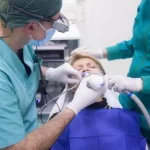Acne is not a common illness, but it can become a major problem if it is left untreated. When left uncontrolled, acne can lead to scarring, inflammation, excessive oil production, and eventually acne cysts. Treating acne can be done at home with natural remedies, or you can visit your doctor for help.
Topical retinoids come in the form of gels, lotions, scrubs, foams, or pessaries to be applied topically to the affected area. They work by encouraging the production of new skin cell production and by removing dead skin cells. The best topical retinoids come from New Zealand, where the population has been growing for many years using natural ingredients. Retinoids may be classified according to their chemical makeup. There are alpha hydroxyl acids, beta hydroxyl acids, and carotenoids.
Alpha hydroxyl acids, also known as retinol, are derived from animal collagen. During pig digestion, they are formed into droplets that settle in the stomach and are released as a liquid, which is then absorbed into the bloodstream. Some experts believe this liquid contains nutrients, including vitamin C and anti-aging compounds such as retinol. In recent years, dermatologists have been prescribing retinoids for acne because they are able to treat severe acne that does not respond to other measures. By helping to stimulate the growth of new skin cell production and to eliminate acne causing bacteria, the anti-aging effects of retinoids may also be beneficial for other skin conditions, including eczema and psoriasis.
Beta hydroxyl acids, or retinoids, are produced from fatty acids. Like retinol, they too can help acne that has become resistant to prescription drugs. However, unlike retinol, the beta hydroxyl acids are not metabolized in the body, so users will need to take them regularly in order to achieve their intended results.
The most commonly prescribed retinoid is retinol, a derivative of vitamin A. Dr. Garshick notes that many acne patients have redness and irritation at the site of treatment, but these fade as the body adjusts to the concentration of retinoids in the body. For some people, however, the use of retinoids could cause redness and irritation. In these cases, he advises people to use sunscreen whenever they apply the product. Dr. Garshick cautions, however, that use of sunscreen may prevent the body from making more retinoids, which can ultimately lead to further skin problems.
Though there is disagreement among dermatologists about the effectiveness of retinoids for acne, many believe that acne responds well to retinoids. A trial using a new class of retinoids found that acne lesions shrank more quickly when treated with retinoids than when treated with antibiotics. In general, acne responds very well to retinoids, especially topical retinoids. As long as you follow the product instructions, you should see excellent results.







 The Role of Essential Oils in Skincare – How to Use Them Safely and Effectively
The Role of Essential Oils in Skincare – How to Use Them Safely and Effectively  The Role of Genetics in the Development of Open Pores on the Face
The Role of Genetics in the Development of Open Pores on the Face  Understanding Skin Types – Normal, Dry, Oily, Combination
Understanding Skin Types – Normal, Dry, Oily, Combination  The Ultimate Skincare Routine for Every Skin Type
The Ultimate Skincare Routine for Every Skin Type  The Essential Guide to Digestive Enzymes Australia: Boost Your Gut Health
The Essential Guide to Digestive Enzymes Australia: Boost Your Gut Health  Latest Breakthroughs in Acne Treatment
Latest Breakthroughs in Acne Treatment  The Rise of Virtual Fitness Classes
The Rise of Virtual Fitness Classes  Fun and Creative Ways to Stay Active Indoors
Fun and Creative Ways to Stay Active Indoors  Linking Oral Health to Overall Wellbeing
Linking Oral Health to Overall Wellbeing 